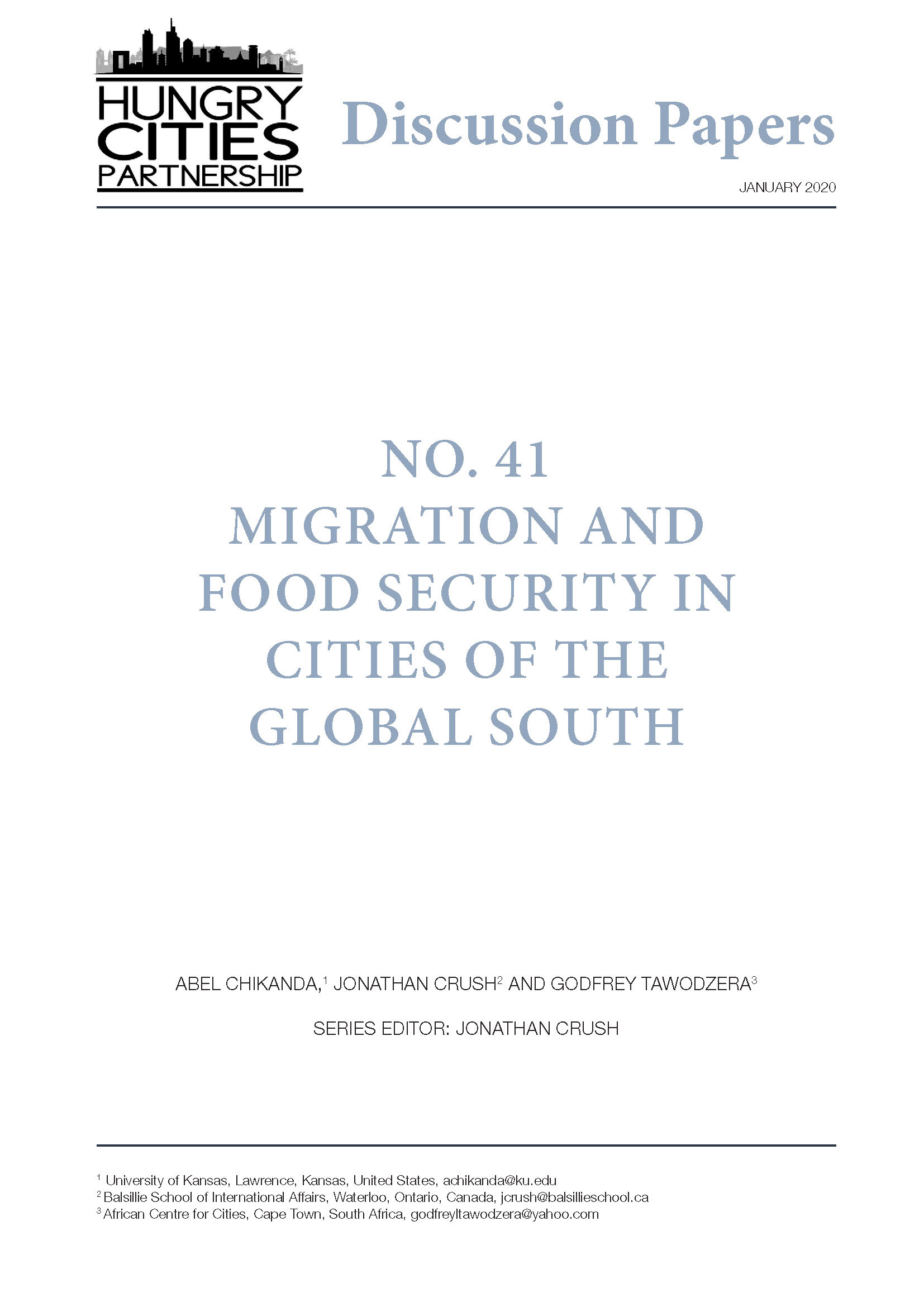South-South migration is an important, though poorly researched, component of the global migration regime. This discussion paper focuses on the movement of migrants from one country in the Global South to live and work in urban areas of another. While they move from one country to another for a variety of reasons and with variable outcomes, the vast majority of South-South migrants move to cities in countries of destination where employment and livelihood opportunities are greatest. The authors find that the data for generating an overall picture of the global distribution of South-South migrants in cities is patchy and dated and that even less is known about the urban food insecurity challenges confronting these highly-mobile individuals. Through a case study of the city of Cape Town, South Africa, this paper identifies priority areas for future research. These include food insecurity as a driver of South-South migration to cities; the levels, determinants and experience of food insecurity for migrants in cities; migrant strategies to mitigate food insecurity; the relationship between food security and social protection for migrants; the role of remittances in promoting and undermining food security; and the place of migrants in transforming urban food systems, especially through their activities in the informal food sector in cities.

